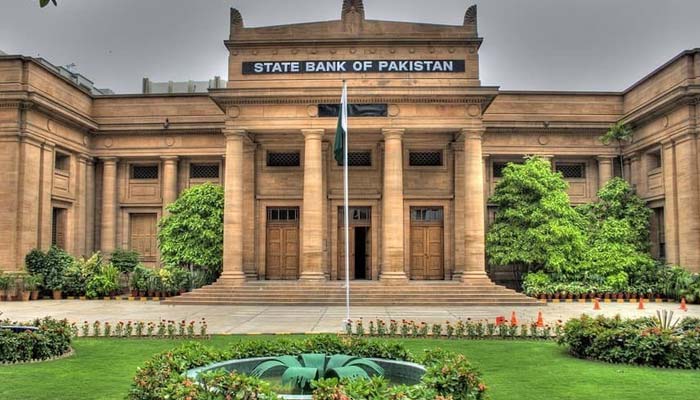
KARACHI: Pakistan’s central bank is scheduled to meet today (Monday) to announce its key policy rate for the next six weeks to maintain the balance between inflation and economic growth.
On April 7, the State Bank of Pakistan (SBP), in a surprise move, raised its benchmark interest rate by a significant 250 basis points (bps) to 12.25% to safeguard external and price stability.
The SBP has cumulatively increased the rate by 525 basis points since September 2021 to control inflation and narrow the current account deficit.
The Monetary Policy Committee (MPC) will meet for the first time under the leadership of acting governor Dr Murtaza Syed to take decisions regarding the key policy rate.
Market speculations hint toward a 100 bps increase, which would take the rate to 13.25% as the central bank would look forward to countering a high inflation reading and likely surge in energy prices to pave the way for reviving the stalled multibillion-dollar International Monetary Fund (IMF) programme.
A section of pundits feels, however, that the monetary policy decision may not be as predictable this time around as anticipated due to uncertainties at the global, regional and domestic levels in the political and economic arenas.
An analyst at Topline Securities in a report said: “Given concerns along with rising inflation and weakening currency, we anticipate the SBP to raise the policy rate by 100bps”.
“Since the last Monetary Policy Statement (MPS) in April, secondary market rates including T-Bill/KIBOR rates have gone up by around 200bps due to uncertainty on the removal of subsidies on petrol and diesel and continuation of the IMF programme.”
Treasury bills cut-off yields, however, declined for the first time after almost a year in the latest auction held on May 19, declining by 5-29bps with three, six and 12 months’ T-Bill yields clocking in at 14.49%, 14.70%, and 14.75% respectively.
Topline Research conducted a poll of leading fund managers to assess their views on the country’s economic outlook.
As per the survey results, around 54% of the participants expected an increase of 100bps, 14% of the participants anticipated an increase of 150bps and 11% expected an increase of 200bps or more.
On the other hand, only 13% of participants expect an increase of 50bps while 9% expect no change.
Pakistan is currently facing tough economic times as depleting foreign exchange reserves, rising fiscal deficit amid huge petrol and diesel subsidy and indecisiveness by the new government on key economic measures are exacerbating economic issues.
“It will be key for the government to take the required reform steps, including removal of subsidy on petrol/diesel, measures to curb imports and improve tax collection. This will pave the way for the resumption of the IMF programme which currently remains stalled and will result in dollar flows that could ease pressure on the currency and foreign exchange reserves going forward,” the analyst noted.
Inflation is likely to increase further in the coming months. The rupee has lost nearly 10% in the last two months, breaching the 200-level against the US dollar last week. With import cover of less than two months and delays in the IMF bailout, the rupee has faced significant pressure.
The weakening rupee along with record-high fiscal slippages are likely to increase consumer price index (CPI) inflation to 15-16%, making a strong case for at least a 100bps hike in interest rates.






